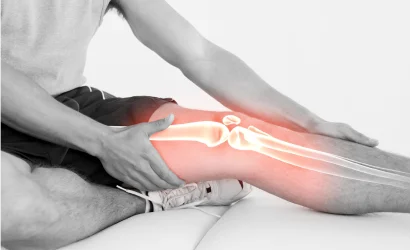
Choosing the Right Orthopedic Surgeon: What to Look For
When it comes to orthopedic care, choosing the right surgeon is crucial to ensuring a successful outcome, whether you need treatment for a sports injury, joint replacement, or musculoskeletal disorder. An orthopedic surgeon plays a vital role in diagnosing, treating, and managing conditions related to the bones, muscles, joints, ligaments, and tendons. Since this type of care often requires long-term recovery and rehabilitation, it is important to choose a surgeon who not only has the right credentials but also aligns with your needs, preferences, and values.
Choosing the right orthopedic surgeon can be a daunting task, but taking the time to make an informed decision is essential. This blog will provide you with key factors to consider when selecting an orthopedic surgeon who will give you the best possible care.
1. Qualifications and Credentials
The first and most important thing to check when choosing an orthopedic surgeon is their qualifications and credentials. You want to ensure that the surgeon is board-certified by a recognized orthopedic association, which indicates that they have completed the necessary training and met the standards required for certification. Board certification ensures that the surgeon is well-qualified and up-to-date on the latest techniques in orthopedic care.
Additionally, look for a surgeon with specialized training and experience in the specific area of orthopedics related to your condition. For instance, if you are seeking knee surgery, choose a surgeon who specializes in knee procedures or has extensive experience treating knee-related issues. Specialized experience ensures that the surgeon is more familiar with complex cases and can offer more targeted care.
2. Experience and Expertise
Experience is a key factor in the success of any orthopedic surgery. An experienced surgeon has encountered a variety of cases, which allows them to develop skills and techniques that improve patient outcomes. In particular, you should look for a surgeon who has successfully treated patients with conditions similar to yours. For example, if you need a joint replacement, a surgeon who performs these surgeries frequently will have better outcomes and be more efficient in their approach.
It’s also important to ask about the surgeon’s complication rates. While no surgery is without risk, experienced surgeons generally have lower complication rates due to their familiarity with handling complex cases. Don’t hesitate to ask the surgeon about their experience with your specific procedure, the expected recovery time, and their success rate.
3. Communication and Patient Care
Effective communication between you and your orthopedic surgeon is critical to achieving a positive outcome. Your surgeon should listen carefully to your concerns, explain your diagnosis and treatment options in detail, and provide clear guidance throughout the entire process—from initial consultation to post-surgical care. They should also encourage questions and take the time to ensure you fully understand the treatment plan.
Patient care is another essential factor to consider. A good orthopedic surgeon prioritizes building a trusting relationship with their patients. They should demonstrate empathy, take your concerns seriously, and involve you in decision-making. A compassionate surgeon will be attentive to your comfort and well-being throughout the treatment process, ensuring you feel supported.
4. Reputation and Reviews
One of the best ways to gauge the quality of an orthopedic surgeon is by looking at patient reviews and testimonials. Word-of-mouth recommendations from friends, family, or other healthcare providers can also help you make an informed choice. Look for a surgeon who has a strong reputation in the community and among other medical professionals. Online reviews can offer insights into the surgeon’s bedside manner, professionalism, and patient satisfaction.
You can also check with your local medical board or association to verify the surgeon’s reputation and any history of disciplinary actions. A surgeon with a clean record and positive feedback from patients is more likely to provide high-quality care.
5. Compatibility and Comfort
Your comfort with the surgeon is an often-overlooked factor but is just as important as their qualifications and expertise. You’ll need to trust your surgeon completely, so it’s essential that you feel comfortable communicating with them. A good orthopedic surgeon should make you feel at ease, be approachable, and provide a supportive environment where you can express your concerns and preferences. During your consultation, take note of how the surgeon interacts with you. Do they listen to you patiently? Do they take the time to explain your condition and treatment options in a way you understand? Your comfort with the surgeon will directly influence your overall experience and recovery process.
Additionally, consider the office environment and staff. Is the staff friendly and professional? Do they answer your questions and assist you throughout the process? A positive office experience and supportive team can make a significant difference in your care.
6. Hospital Affiliations and Facilities
The hospital or surgical center where the surgeon operates is another important consideration. High-quality facilities with advanced equipment are essential for a successful surgery and recovery. Find out where the surgeon performs their surgeries and whether those hospitals or centers are accredited and well-regarded for orthopedic care. The surgeon’s affiliation with top hospitals often indicates that they have access to the latest medical technology and support systems.
Choosing a surgeon who works in a reputable facility ensures that you will receive the best care before, during, and after surgery.
7. Treatment Philosophy and Approach
Lastly, it’s important to consider the surgeon’s treatment philosophy. Some surgeons may prioritize surgical intervention as the primary option, while others may take a more conservative approach, starting with nonsurgical treatments such as physical therapy or medications. Your ideal orthopedic surgeon should align with your preferences regarding treatment methods. If you’re someone who prefers to exhaust all nonsurgical options before considering surgery, it’s important to find a surgeon who respects that approach and supports it.
Conclusion
Choosing the right orthopedic surgeon is a critical decision that can significantly affect your health and quality of life. By considering factors such as qualifications, experience, communication, reputation, and compatibility, you can make an informed choice that aligns with your personal needs and values. Don’t rush the decision—take the time to research and meet with potential surgeons to ensure that you’re in the best hands possible. With the right orthopedic surgeon, you’ll have the support and expertise needed to make a full recovery and return to the active lifestyle you enjoy.





